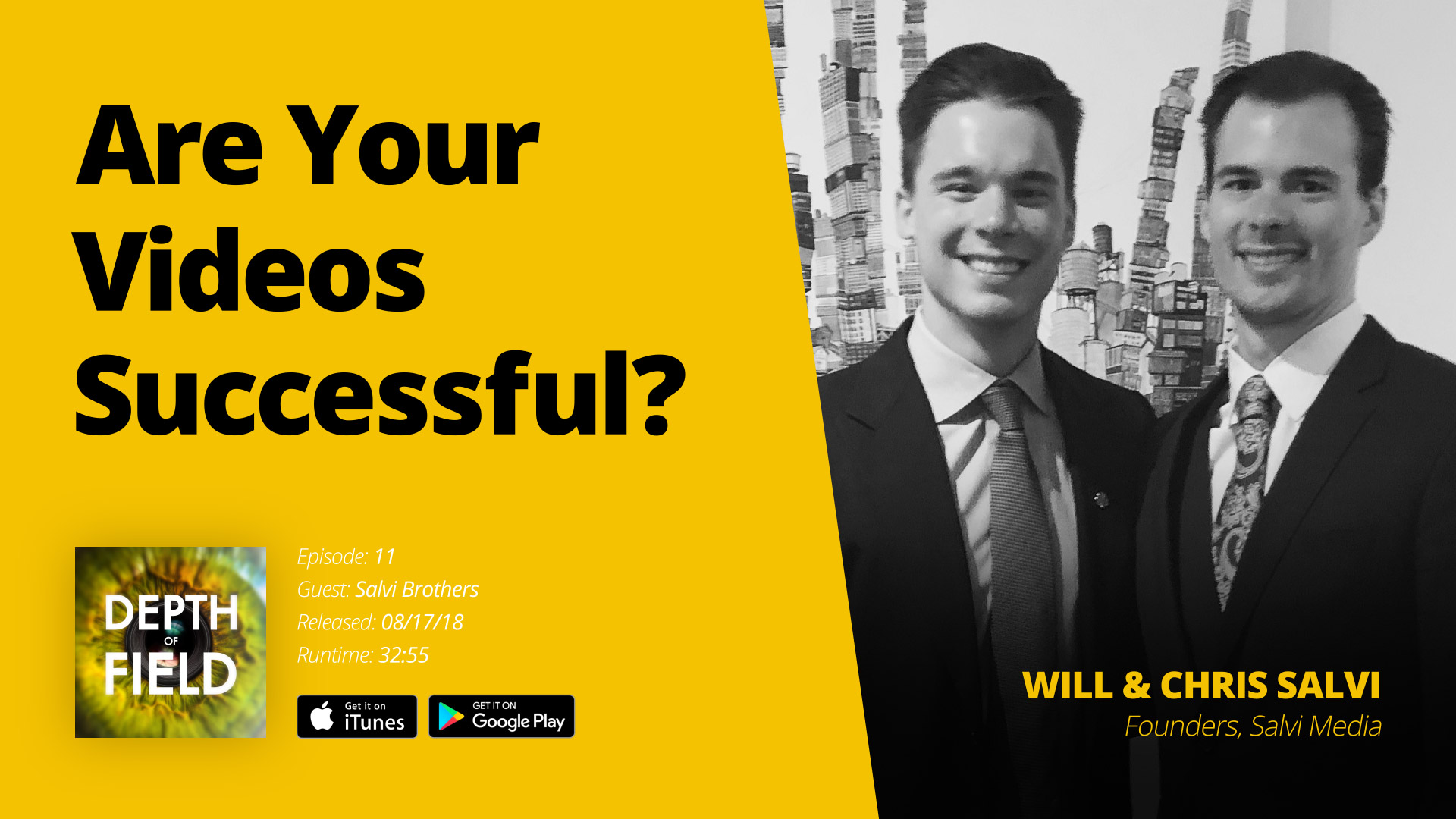
Will and Chris Salvi give us a look at the mission behind their Chicago based production studio: to make sure their clients are succeeding with their investment in video. In this episode we talk about tactics for measuring success, using data to improve video strategy, recovering from mistakes and much more.
Related Links
Welcome
Adrian Thompson: Hey guys, this is your host Adrian and today on the show we have a couple brothers who started a studio in the Chicago area. A big part of our conversation is going to be about understanding whether or not the videos you make are successful for your clients. Can you answer that question? If not you’re going to like this episode because they have a great mindset and I have a feeling that is a big part of that success. Let’s get this underway.
Adrian: Alright, well we have the Salvi brothers here on the show. Guys, thanks so much for coming on.
Chris Salvi: No problem.
William Salvi: Yeah good to be here. Thanks, Adrian.
Adrian: I’d love for you guys to just introduce yourselves. Explain what you’re doing, where you’re doing it and maybe a little bit of the why as well.
William: Well, my name is William and I’m the producer at Salvi Media. In terms of our company I’m in charge of all aspects of our video production. And Chris…
Chris: And I am the executive producer. We mean that in how the film industry means it. So I look for the resources to provide Will the ability to make the stories.
Experiences in Starting a Studio
Adrian: And what inspired you guys to start a studio together?
William: Well, we picked up a camera about 18 months ago. Both of us didn’t have any background in film or anything related to video. We just were really interested in it. We bought a camera and we just dabbled with it to start and through time we’ve just gotten more and more into it. And through that we’ve gotten really into the strategy behind it and how to use these videos. And that’s where Chris really takes our video content and dives in to what we should do with it. I think my answer to that question is we just love the creativity of it. And it’s just a whole lot of fun to have projects start to finish that we created and we get to help mold.
Adrian: So you guys weren’t freelancing and doing passion projects before starting the studio? It sounds like you were interested in video and then you turned it immediately into pursuing clients and pursing a professional route. Is that right?
Chris: Yeah, so there’s two sides to it. To piggyback off Will, we thought it was really cool. Making videos is awesome. It’s such an important and powerful way to convey information and to persuade people. It’s a persuasion tool as well as we know from mass media.
Adrian: Right.
Chris: We also saw an opportunity in niche markets to utilize video. And so we saw opportunity and we saw excitement of making videos, and that is molded into both of our roles too. It just naturally happened. Will understood the actual production of the video more than I did. And so he gravitated towards that and has become as excellent producer. And then I started to gravitate and keep my ear to the ground on how to use videos, optimizing videos, and then being the sales side, if you will. I don’t always like to use that term because we’re not just trying to sell a single video. We’re really trying to partner with people to utilize video in a way that increases engagement with customers. Or if it’s used internally to increase moral of a company. So yeah.
Adrian: When you guys were starting did you see people that had this need already and that’s why you were like well why don’t we give them this solution? What that the equation going on? You already saw potential clients that you could serve?
William: Yeah. So we originally started really researching the legal and the service professional market in terms of video. We noticed that a lot of these professionals struggled a bit in terms of their overall marketing strategy I would say. But really in terms of their video. We saw there was a great opportunity to go in and transform their online reputation, their digital marketing strategy, through the world of video. We attacked a lot of the legal industry. We come from a family that has a lot of roots in law. That was a great outlet for us to start and learn our craft a little bit. It was a lot of hard work in the beginning because like I said in the beginning we didn’t have much experience in this. And everything was learning on the fly and tripping over yourself a little bit and getting back up and preventing it for the next shoot. It’s really helped us. Just keeping an ear to the ground and learning. Just constantly trying to evolve with our product because we’ve really learned so much from the start to now and we continue to learn so it’s been a lot of fun.
Adrian: Awesome. I’d imagine a big part of your success is that you’re invested in the success of your clients which can’t be said for everyone that’s creating video content. So I’d love to talk more about that. How you obviously had a passion for that from the beginning. So just wondering how that came about. Did you notice the lack of it in people’s current marketing? After that I’d love to just start getting into what those tactics actually are.
Chris: Yeah I’d love to talk about it. Because it’s my biggest gripe with so many video production companies is they’re so excited to do this elaborate video where they bring out giant crews. There’s a place for all that, but when you’re talking about web content it’s not the same thing as making a film. Or even a Super Bowl commercial or even just a commercial for that matter. It’s web content. Yes it has to be high quality. But there’s a volume game to this. And more importantly there’s a relevance game to this. You have to understand your audience. Where they’re at. You’ve got to place your videos in the right places. You’ve got to tag it the right ways. You got to get it in front of people who actually care about the content you’re making.
Chris: That’s my biggest problem with a lot of video production companies is that they’re only focused on doing a big project instead of making sure it’s an ongoing thing that’s a return on the investment, and you’re adding value to your customers.
William: Yeah to piggyback off that. One of the things that Chris and I are very good at is making sure that we’re partnering with people that want to partner with us. I know that sounds obvious. We try to really preach and educate our clients on this is a marathon not a sprint. It’s rare to get this great viral video, so it’s really about producing those 12 videos a year. 20 videos a year. Versus one to two and hopefully they work out. It’s an ongoing battle that needs to constantly be attacked. So we really try to get the right partners with us and make sure everyone has a cohesive strategy. Everyone’s on the same page. That really has helped us in terms of getting new clients as well as retaining our clients. Because right now we have a number of clients that we thoroughly enjoy working with. That only gives us more credibility within the industry. It also gives us more clients in turn because the referrals they know that they trust us. They know that we want to become partners with them and they know that we want to add value.
William: We really try to stay away from … We’ll obviously do any video project, but we don’t want to say to the client let’s do this one video and sayonara. We want to work with you. We want to understand your business and your brand so we can do our best job at telling your story.
Adrian: Yeah that’s great. My background is in motion graphics, and I’ve seen the nature of the creative spirit is to want to produce something that looks good in your portfolio. That looks good to your peers. Rather than something that is going to be the most effective to a corporate client. Which if you’re going to maybe pursue what’s best for them, it won’t be as good in your portfolio or it’s not as fun to share on Facebook. But that’s the spirit that I think needs to be corrected and that you guys have the right mindset on. Because the real success if your actual clients are succeeding. Not if you look good from the work that you’re producing.
Chris: Yeah I think it’s a sore spot in marketing in general right now. Especially digitally. The beauty in all this is you can measure it. So find out if you’re being effective. If you’re not being effective for your client you shouldn’t be doing work for them. I think a lot of marketing agencies don’t express that to who signs them up. Let’s have this game plan. We’re going to have deliverables that are this, this, and this. We’re going to measure it by this, this, and this. And if it’s not doing what we need it to do we’re got to adjust. And if it doesn’t work again, well maybe we just weren’t right for each other and we’re not getting the job done.
Measuring a Video’s Success
Adrian: Yeah let’s dig into those tactics and measuring more. My experience is all in production, serving a client a final video file. That’s actually been one of my frustrations. Always wondering what are they doing with this video when it’s done and how are they making sure it’s working. Because I have never been involved in that aspect. I don’t know if they’re hiring an agency or they’re just managing it internally, but it’s a really frustrating thing because I can tell when I find the video and it’s just hosted by Vimeo. And it’s on some landing page and there’s no unique codes or ways to track it. I’m like there’s no way they’re tracking the success of this thing. And you guys are actively wanting to correct that by being involved in the whole process. I’d love to hear … Let’s dig into the tactics of what you’re doing to make sure that your customers are succeeding.
Chris: So here’s a full example of it. Let’s say we have someone come to us. They go okay we want to make video content. We want to make a good amount. We say okay great. Let’s see where you’re ranking for things that matter to you. Or if we’re using a PPC campaign, let’s see if we can increase the conversion rate. Okay so we’re going to make this video for that keyword or phrase because it’s ranking number eighth for it and we want to get it up to number three because if you do that you’re going to get more clicks on your website. And therefore you get more clients. So we’ll pick a few keywords and phrases that are important to them and ones they can actually make a difference in. So there’s research in the domain authority that needs to be done. And then we build content around that.
Adrian: And you’re embedding these keywords I assume in the titles, the descriptions, everywhere in a video where you can embed that content. Is that where you start?
Chris: Right. And we use video hosting softwares. Big ones are usually Wistia… I need to look into Vimeo. I’ve seen some ads. I don’t know integrated they are with websites and embed codes and etcetera. There’s a few different softwares as services that can provide that.
Adrian: Yeah. My experience with Wistia … The data they show you in terms of how long people are watching. They allow you to put an email embed or a call to action button at the end which I don’t think Vimeo offers at this time. I think they’re trying to attack this more. Wistia to me seems to be like the leader in terms of data you get from the video. Which I saw you guys are using in your own videos as well.
Chris: Yeah and it really is something that needs to be taken advantage of more. It goes back to what we said earlier which is one video a year, let’s say, for a company, it doesn’t quite do much if you post a video and you see the analytics behind it. And you just have that one video for the year, right? And if you did, let’s say, 12 videos in a year. Maybe the first video of the month you notice that people started to stop watching around the one minute mark. For whatever reason. Maybe the video started to lose a little speed. Maybe the shots weren’t as pretty. Maybe the content wasn’t that good in the video. So what do you do the next video that you product the next month? You adjust. You tripped on yourself the first time now you try to fix it for the next video. And so on and so forth.
Chris: So every single month you’re learning new things about your potential customers and your target audience. That is valuable in 2018 and where our world’s going in terms of digital. If you have one video in the year and you look at the analytics from it, your target audience might’ve changed in that year. They might want different things in that year. If you do it consistently, back to that marathon not a sprint, if you do it consistently you can consistently adjust along with what they want. Therefore, the value that you’re bringing in is going to be much higher than just say that one video from a really large production company that brings out a seven person crew. When really a great video can be accomplished with much less.
Adrian: Right. And I’m glad you touched on audience because I think that’s a really important thing to talk about that everybody’s audience that’s watching these videos is going to have different needs in terms of what they’re looking for and what makes an interesting video. For things like their attention span, what they want to click on, what kind of thumbnail that you should have. You guys are obviously targeting the legal and medical, so the data that you’re collecting in terms of what makes a compelling video to people this day is going to be totally different than an app maker marketing a video to the average consumer.
Chris: Yeah every audience is different. Which is why it’s so important for the people making the video to fully understand their client and their customers.
Adrian: Yep. Oh go ahead.
William: I was going to say I think Chris and I, the fact that we come from not a film background. The fact that we have that naïve mindset almost in my opinion. It’s only given us a bit of an advantage in terms of how we look at everything. Because I would say that most film makers or videographers or anyone making a video for let’s say a corporate professional. All they would want to focus on is make sure this video’s good. Which is great. Because that’s what we focus on too. But like we said it’s important to know what the video’s going to do. It’s important to know how it’s going to help. A client wants to know those questions. They’re spending a lot of money on this type of content, and it’s a powerful form of content. It’s not text-based. It’s not a picture. It’s not a static infograph. It’s a video. You can get tone out of a video. You can get body language. Different types of phrases, words. It is just a different beast of content. It really needs to be utilized.
Adrian: Is there any other tactics you guys wanted to talk about? We mostly covered SEO and using tools like Wistia to track data. Is there anything you guys wanted to get into?
Chris: Yeah. Use data to drive how you’re going to make the content, and what the content’s going to be. And then use the data to evaluate and adjust. That’s the power of digital is that you know exactly what your audience likes, doesn’t like. It’s a beautiful thing. It’s what makes Netflix so great. It’s a don’t overthink it situation. People are doing this. Use the information that analytics gives you.
Adrian: That’s a good example. I heard on a podcast once that the whole reason they made House of Cards is because of all the data they collect on people’s watching habits. They saw people love movies directed by David Fincher and they love movies with Kevin Spacey. So they put the two together and made their own show with those two things. It blew up because they used the data that they had to target their audience. I thought that was a really good example of that in action.
Chris: Yeah I’m glad you told me that. I’m going to use that.
Communicating with New Clients
Adrian: Yeah it’s a good one. I’m assuming you have to educate clients on this beforehand because not every lawyer, medical person probably has video marketing experience. What is that conversation like and are you having to teach people or is it coming naturally to them? It just makes sense and they’re onboard immediately. How does that go down?
William: It’s a little bit of both. Chris definitely has to educate them quite a lot in terms of diving deep into what the video actually does. There are some companies that understand it pretty comprehensively and there are some where you’re talking to someone who just heard this for the fist time. Which is totally fine. It is very important for us to educate them because part of our model is to make sure that we’re producing a number of videos and they’re giving you value in return. That’s why we have to say to them hey let’s focus on what helps you, law firm. Let’s focus on what helps you, digital marketing agency. We don’t want to just create this fun brand video and hope it does well. Obviously that’s what we’ll do if that’s what you want, but we will be in their ear the whole time saying what we think should happen and how we think it should go about.
William: Because it really is so important to make sure that everyone’s on the same page. That’s another thing that I think Chris and I really excel at with our clients and with whoever we work with. We have a very clear understanding of each other. And we also try our very best to communicate thoroughly with them to make sure everyone’s on the same page. It’s such an enormous aspect of not only this business but I would say who Salvi Media is. It’s about making sure that we’re working with partners. People who understand us. We can understand them. The communication is always going to be on the same page. And if it’s not, we’re going to try our best to make it on the same page.
Chris: I would also say it definitely depends on who you’re talking to. If I’m talking to the decision-maker CEO, I’m not going to talk about the details of search engine optimization. I’m going to talk about cost effectiveness. I’m going to talk about a return on the investment. Being digital asset, etcetera. But if I’m talking to the person who’s in charge of their marketing, I would talk about the nuances of hosting the video, search engine optimization with the video, transcription of the video, etcetera.
Adrian: Do you guys feel like you’re competing with the agency model because typically this is the type of service that a large agency that has a huge price tag. That was the only place you could find this attention to detail on both sides of the ballgame. It seems like you guys are still operating more with a studio spirit. Do you feel like when you’re having these conversations like that that it’s an advantage to you as you’re selling?
Chris: It’s part of the secret sauce. It’s getting to know… if the people who are making the video are the ones looking at the analytics on what the audience wants. That sounds a lot better than the agency looking at it and then telling us what to do. There’s already a degree of separation. We want to eliminate that and we have been. And that’s part of our value add.
Learning from Mistakes
Adrian: Is there any challenges or resistances you guys have had while starting the studio or just operating in general that you’d like to go through? Maybe some hard lessons you’ve had to learn along the way.
William: Oh yeah. I have a few in a production sense. I mean number one we’re new. At the start people didn’t know that we were new in terms of making videos and how well we did it and what our processes were. So naturally there were a few challenges that came along with that. But we overcame those challenges by making sure that number one we properly educated ourselves. Chris and I became very informed in our respective areas within the business. Chris is killer at making sure that your digital strategy is cohesive and it’s bringing value to your company. It’s a crucial part of what we do. And then for me, as long as I keep learning about production and keep my ear on the ground on how to continue to better or videos and continue to better our production, that argument of us being new or inexperienced is just going to go away with time. So I’m not really too worried about that.
William: In terms of small video aspects in the production sense. There are little things that we go through with clients. We’ve had a client or two come back with 30 emails of edits. Each email features a small little thing to change in the video. As you can imagine, that’s incredibly for a business to go back and forth and go back into the evidence room. Then fix it up here then send it back. Back and forth. Blah blah blah. We truly have learned with each video that we produce. Whether it’s learning with the learning and how communicate with them. Whether it’s our own selves and what to do next time around if we made a mistake. In my opinion it is essential, not just in video production, but in all of business. To look at all your mistakes in the best way. Because mistakes are going to prevent future mistakes. I love mistakes. I think mistakes are great. They’re going to prevent it for the next time. As long as you can handle it at the time, mistakes are golden in my opinion. It’s ammo for next time to improve.
Adrian: Nice, I like that.
Chris: From my perspective, I had to make sure I put three edits into the contract. So for my end, helping Will stay efficient. Because the client doesn’t always know best. Sometimes they have the worst prospective of whether or not their video is good. Because they’re so closely attached to it. We make sure there’s barriers to becoming inefficient.
William: Yeah it’s kind of like reviewing your own self on Facebook or Google reviews. Salvi Media reviews and it’s from William and I give myself a five star review. That’s not an unbiased review. You need to separate yourself if you’re a business owner. If you’re checking yourself speaking. Some people are very self-conscious about the way they speak or the way they look. I’m thinking to myself I can’t do much about that. It’s an interesting ongoing communication thing that we have to work with with everyone involved not just with clients but with our own team.
The Most Memorable Project so Far
Adrian: Right on. Okay guys well as we wrap up I wanted to hear any interesting stories you have on all the interesting projects you guys have been a part of. Is there any one that sticks out in particular?
William: Yeah I have one that sticks out. This was a little earlier on in our company. We worked with a foundation that helps people that have been diagnosed with a rare form of brain cancer, glioblastoma. It’s called Michael Matters Foundation. They do great work and they help a tremendous amount to people. We were able to do a video for them. The video was centered around a four year old who had glioblastoma. It’s a really, really tough disease for everyone involved whether it’s the person who actually has the diagnosis, or their family, or anyone involved. It’s really a tough situation to deal with. We spoke with the nice kid. His name was Jaden and he was four years old. He has this really rare form of cancer. John McCain has it. A few people have it. It’s very prevalent. It was just a very enlightening conversation. I know it’s a bit of a sad story because he’s so young and he doesn’t really know what’s going on. It’s such a tough thing to be diagnosed with for so many reasons.
William: But it was really great for us to work on that because we believed in it. We wanted to hear his perspective. We wanted to get his thoughts. Not just about the foundation, but about life. Literally about life. He’s four years old. We talked to him and his Aunt about the next steps in his life. That was really eye opening. For me that was quite a great experience to talk with Jaden and work with them. It was just great to work with them, and hopefully the video helped them. That would be my story.
Chris: Yeah mine’s the same one. It’s still the most powerful video we’ve done so far. Will asked some really good questions. It was a powerful video and a powerful moment.
Adrian: That’s always cool when your work can teach you so much about other people rather than just being locked up doing the same thing. You’re actively learning and sharing what other people are doing. Which is a really cool part of our jobs.
Chris: It is cool. Isn’t it? We get to meet so many different types of people.
William: Yeah. You kind of have to dive into what they do in order to tell the right story. You have to do your research. You have to understand them. If you want to do it right you have to do those things. You have to understand who they are. You have to understand what kind of story they want to tell. Or else I’m not going to do too well if I don’t understand them or I don’t care about what they’re doing.
The Salvi’s Practical Advice
Adrian: Awesome guys. Well before we close I like to end each episode with a little call to action for the viewers. Or for the listeners I should say. So based on what we talked about today let’s assume they’re not doing anything to figure out if their videos are succeeding or they’re not even having those conversations with their clients. Where would you suggest they start? What’s one thing that they should implement right away this week?
Chris: One, don’t underestimate the power of your iPhone video. Two, make sure you’re tracking the engagement with your viewers and find out what they want.
Adrian: Did you want to add anything to that, Will?
William: I would say that the biggest piece of advice I would say is anyone who’s a business owner or maybe the head of marketing or anything like that that would be dealing with video production. You need to look into it. You need to research it. You need to understand its power. Because it is powerful for a multitude of reasons, and it’s imperative, especially in the digital world that we live in now. It is imperative to have higher quality video content than our competitors. Period.
Wrap Up
Adrian: Awesome. Great stuff guys. Well if people wanted to see more of your work or potentially work with you if they’re in the Chicago area. Where would they find you?
William: They can find us on our website: salvimedia.com.
Chris: All of our social channels: Salvi Media you’ll find it on everything. LinkedIn, Facebook, Twitter. @SalviMedia. Chris and I are also on there, our personal profiles. You’ll probably see us all over the page.
Adrian: Awesome, and I’ll also put those links in the show notes for you guys that want to check it out later. Well it was wonderful having you guys on. Thanks for sharing your insights; it was super helpful stuff, I hope everyone loved it. Thanks again for coming on.
Chris: Thanks so much, Adrian. Really appreciate it.
William: Thanks, Adrian. It was a lot of fun.


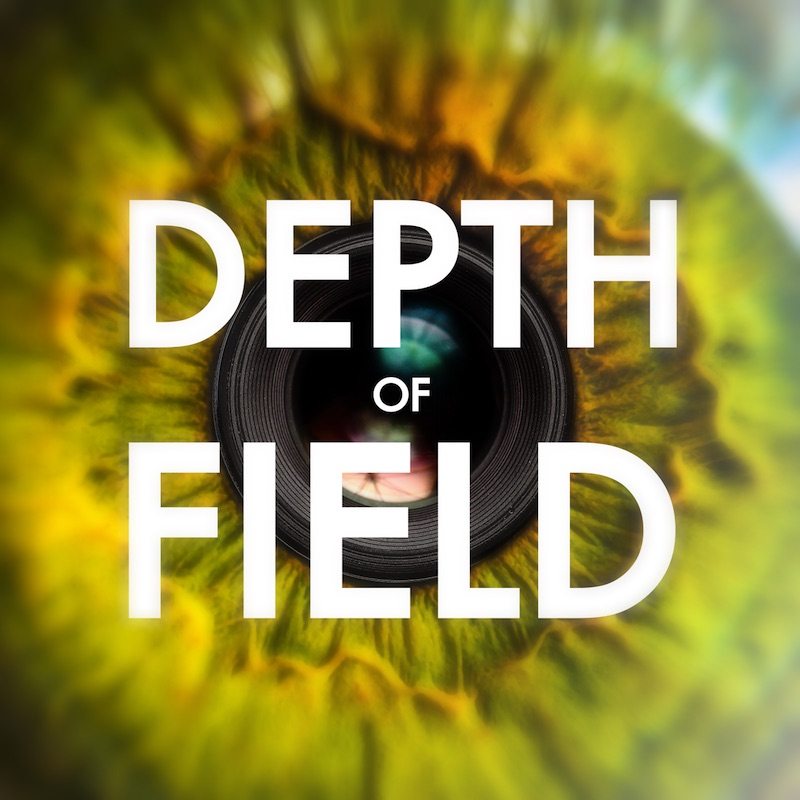


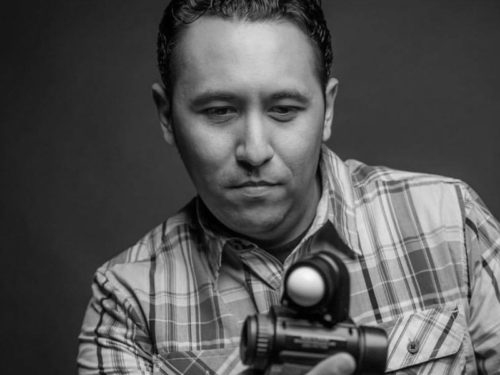
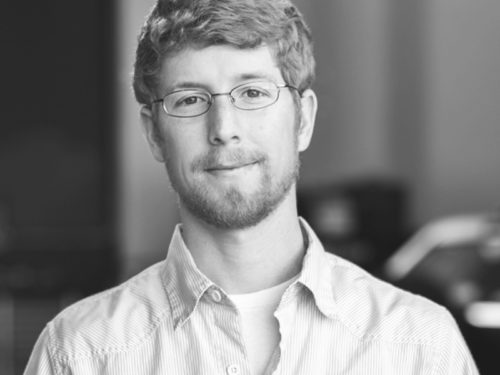
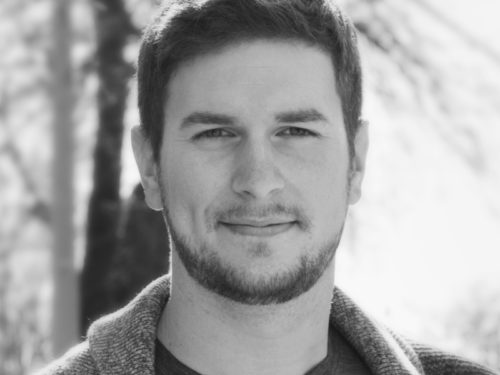
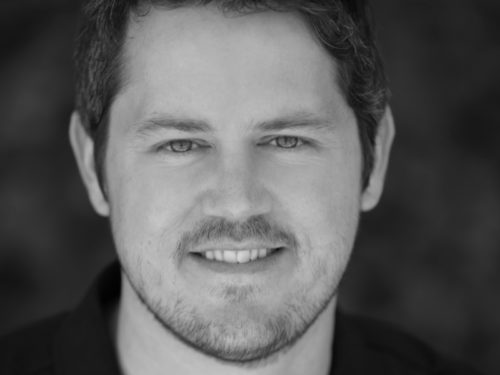
0 Comments